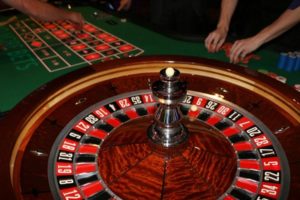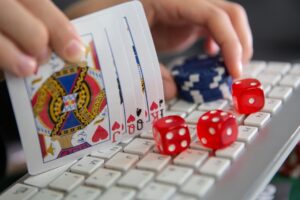Playing cards by wagering money, scratch games, sweepstakes, sports betting, or other gambling can cause some pleasure for players. However, when the player loses control over his playing, over the sums wagered, we talk about problematic or even pathological gambling depending on the severity. Or how when the game is no longer one. DPBOSS Matka is also a type of gambling.
Addiction figures
According to studies, there are among gamblers 10.8% of gamblers with a problematic or pathological practice, i.e., 1.3% of the population.
It should be noted that one in two people play games of chance occasionally, one in five people play at least once a week, and one in ten would spend more than € 500 per year on the site of DPBOSS.
The different player profiles
Experts distinguish three types of players:
The recreational player
- He plays for fun and social connection
- He has no problem with the game
- He can control the number of his bets and his practice (can stop without problem)
The problematic or at-risk player
- He feels guilty when he plays
- He is putting more and more sums
- He may have depressive episodes
- He finds it difficult to stop playing
The excessive or pathological player
- He can not control his practice of games (impossible to stop)
- He puts large sums
- He takes out loans from relatives, institutions (banks, etc.) to repay his debts / continue playing
When the game becomes a problem: the alert signals
When the practice of gambling drifts towards a problematic practice, certain signs should alert you:
The lie: People who have a problem with gambling tend to want to hide it from those around them. They will pretend to do other activities or minimize losses
The desire to redo: Some players want to go back to playing, or play more and more to “compensate for their losses” and recover the money they have lost.
Borrowing money: There comes a time when players will no longer have enough money to play; they will then borrow money from their loved ones.
When to play is a need: The player presents a “withdrawal symptom” when he does not play: he becomes irritable, impatient, restless … until he plays. The player can also play to forget. The player uses the game as a source of escape from his problems, difficulties, or stress.
Treatment of gambling addiction
The treatment of gambling addiction is based on psychological help, whether by psychologists, psychiatrists, or psychotherapists.
The treatments are diverse depends on the player. They usually start with motivational interviews, to assess with the patient his motivation to stop playing, his goals. Then a therapy aimed at modifying the problematic behavior, fighting on false beliefs. Finally, there is an analytical work on the origins of addiction and problematic behavior.
In the case of more serious conditions (depression, anxiety), psychiatric treatment with medication or hospitalization is possible. This treatment can be carried out in certain addictology departments of hospitals and clinics, CSAPA, group therapies with associations of former players.
Conclusion: Addiction to gambling (paid) is characterized by an uncontrollable need to play games and more particularly to bet money. Besides the addictive nature of gambling, financial, moral, and social problems can be associated with this addiction. This is why it is important to take charge of it as soon as possible to limit the consequences.
You may also like
-
Efficiency at Your Fingertips: The Ultimate and Best Way to Login Joker123
-
Find the Perfect FC1888 Online Casino in the Philippines 2024
-
Win More Cash On Playing Real Online Casino Games with Real Fun
-
The Evolution of Sports Betting: A Brief History
-
How to enjoy a rewarding experience in online slots?











